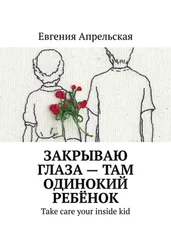All of my love, JEN
My legs won’t hold me. I grip the side of the bunk for balance as I let myself drop onto the bottom mattress. My body is shivering from head to toe. The mere sight of his handwriting—the neat slice of his black pen, trailing down on the long letters in the gentle curve of swords— both stuns me and pulls me in. And his words, they flood into my mind and find nowhere to go.
I am glad I didn’t realize he felt this way. I couldn’t have survived it, long ago, knowing that he did.
Tear it up, I think. Throw it out. Flush it. It’s all long gone .
But I can’t. I don’t have the heart. I want to be able to read his words again, over and over—his love and regret, the things that made him human and worth my heart. It shouldn’t matter one bit anymore, but instead it means everything.
* * *
Dear Ms. Shepard,
Thank you so very much for the letter from Ricky. I have tried to write you several replies and I can’t properly put together the words to express my gratitude. It truly means the world to me. I must say, your letter arrived at a delicate time. I have been struggling with an emotional situation involving a family member, and my cellmate is in poor health, which has left me burdened with an unusual amount of psychic distress. While Ricky Rowan may be the last person I should want to comfort me, his words are strangely welcome at the present moment.
In thanks for what you have shared with me, I feel moved to offer you a part of the story I haven’t previously spoken of to anyone. Please bear with me, as this is difficult to explain, but hopefully it will shed light on some of the more puzzling aspects of the chain of events, particularly my own crime. I realize your book is about Ricky, but perhaps this will help you understand the big picture.
Garrison Brand, my stepfather, was a good man. He suffers from Alzheimer’s disease now and lives in a senior home, yet even after all these years he remains in my daily prayers. He married my mother in 1972, when I was eleven years old, and I believe she was very fortunate to find such a partner in life. He was a loving man and a thoughtful one, a good provider and one who, until the very end, honored his vow to be true to her in sickness and in health. I called him Pop . It was a compromise between calling him by his first name, which we all felt was disrespectful, and calling him Dad, which I felt was disloyal to my late father. But despite the friendly nickname he and I were never very close, probably because he and my mother married at the time I was becoming a young woman. That must be an intimidating thing for any stepfather. Girls of that age are best known for their volatility and drama, and while I was a well-behaved child, I wasn’t immune to either of those things.
Pop brought with him his son, Clinton, from his first marriage to a woman who was unfit to take custody of him for reasons that were never really shared with me. The family had moved to town about four years earlier, and the parents were divorced about a year after that. Mrs. Garrison was said to have “run off,” whatever that means. We knew them from our church. Clinton was fifteen at the time of the remarriage, and my impression of him was that he was bossy and blunt in his criticisms. At the time I assumed he was angry about his mother, because he was, in the language of the era, a male chauvinist pig. He was openly critical of my mother for not changing her surname to Brand. She kept my father’s name because she didn’t want me to feel isolated as the only Mattingly in the family. Clinton had a habit of ordering me around, especially when my mother and Pop were out of the house. He’d announce that I needed to make him a sandwich or tell me to go mow the lawn, which was his responsibility, and he would yell at me in a very hostile way if I was slow to obey. My mother wasn’t a yeller, so this behavior rattled me, but I assumed it was just the way of teenage boys. It didn’t help that Clinton and I looked physically similar—blond hair, slender builds, etc—so many people assumed we were true siblings and often referred to him as my brother, which elevated my perception of his authority.
A couple of years passed, and it was the spring of Clinton’s senior year of high school. He earned an acceptance to his first-choice university on the East Coast. Life with him around wasn’t terrible. Except for occasional things like the incident with the kittens, he was nothing more than a bossy and obnoxious stepbrother most of the time. But I was looking forward to a more relaxed household with him away at college. Clinton played lacrosse for his high school team, and our house was often filled with noisy players and some of Clinton’s many female hangers-on, because he was a blond, blue-eyed California boy and the target of much romantic intrigue. When his friends filled the house I spent most of my time shut away in my room reading and drawing, which, little did I know, would prove to be good preparation for my adult life.
One evening my mother and Pop were out at the church—they were on the committee that prepared the fellowship hall for the repasts after funerals—and I was reading on the sun porch while Clinton watched television. I heard him call my name, so I set down my book and went in. He looked at me from where he was lying on the sofa and said, “Go to your room and go to bed.” I asked him why, and he told me just to do it, which was typical of him. But it was around eight in the evening, so it wasn’t a ridiculous thing to demand on a school night. I went ahead and obeyed him, dressing in my nightgown and taking a book to bed with me.
It was only minutes after I had turned out my light when I heard my room door creak open. I pretended to be asleep, but I could hear his footsteps coming closer. At first I thought he was going to confront me about reading in bed, but that wasn’t his purpose at all. He sat on the side of my bed, and I probably don’t need to describe to you what came next. I kept my eyes shut tight and continued to act as if I were asleep, and he stopped just short of actual intercourse. The experience absolutely gutted me. I had my back to him so I didn’t even understand what he was doing—it was simply a humiliating thing for which I had no words.
For the next several months he continued that pattern—coming in whenever he had the chance and using me as a sort of lifeless masturbatory aid—and I didn’t say a word about it to a single soul. I had been warned about adults who try to “touch” children and that if this happened I must report it, but what Clinton did was not anything I could have described aloud. He was neither tentative nor gentle. When he came in, it felt as though I excused myself from my body and went somewhere else for a while. It was as if I knew a secret about what was happening to Clara, but that was somehow a step removed from such a thing happening to me . It was a necessary distinction to make. My mother had told me many times after she remarried that one of the worst aspects of my father’s death had been that I was being denied the experience of growing up in a real family. To upset and disappoint my mother was unthinkable, so I had to find a way to make this not exist. And I knew Clinton would be going away to school in a few months, and it would all be over.
Then a crisis occurred. Clinton’s grades had dropped too much, and his East Coast school rescinded his acceptance. That meant he had to go to the local community college in the fall, and he would continue living at home. I thought very hard about what to do, and I worked out that I would ask my mother for a lock for my bedroom door because Clinton’s dog, a Golden Retriever, had learned to nudge my door open with her nose and it made me feel anxious while I was getting dressed. I was thirteen years old, and this seemed like a credible enough excuse at the time, although looking back, if I had ever used it I’m sure my mother would have immediately grown suspicious and everything would have blown up right then.
Читать дальше









